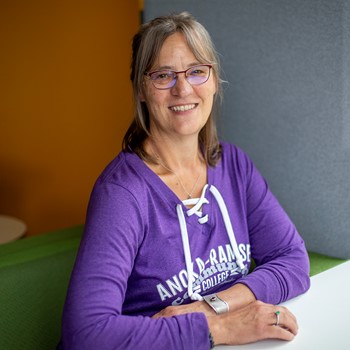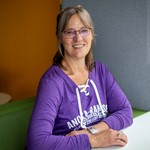THE MISSION
Anoka-Ramsey Community College is an open-door, comprehensive higher education institution committed to excellence in teaching and learning. Anoka-Ramsey is committed to responding to the educational needs of its changing communities and to providing opportunities for enhancing knowledge, skills, and values in a supportive learning environment.
THE VISION
Anoka-Ramsey Community College is committed to developing articulate, critical and creative thinkers who are responsible contributors to the community.
THE STRATEGIC PLAN
Embedded within these goals is a commitment to quality education and student success, ultimately leading to graduation. Graduating with a degree and/or certificate benefits both career and transfer students. By graduating with a credential, students demonstrate their persistence and skills and are better prepared for the challenges of life and future studies.
Commit to Student Success
We value the success and well-being of our students.
We value access and affordability for our students.
A. Increase the number of students transferring or completing a certificate, diploma, or degree in a timely manner.
B. Equitably increase retention and academic progress.
C. Develop proactive approaches to meet students’ changing academic, physical, emotional, and financial needs.
D. Empower students to gain ownership of their academic and personal success.
Promote Academic Excellence
We value excellence in teaching and learning. We value continuous improvement in curriculum and instruction.
We value exploring new pedagogical methods that enhance learner outcomes.
A. Offer rigorous programs of study to meet current and future transfer and workforce expectations.
B. Actively assess that learner outcomes are being met to improve curriculum and instruction.
C. Incorporate inclusive classroom strategies that engage all students.
D. Establish and maintain learning environments and delivery methods that support diverse, state-of-the-art, student-centric learning experiences.
E. Maintain high academic standards and support students to produce quality work.
Foster a Vibrant Culture that Practices Equity and Inclusion
We value a culture of caring and mutual respect for all students and all employees.
We value equity and inclusion campus-wide for all constituents.
We value collaborative leadership and decision making.
We value intellectual curiosity and knowledge growth.
A. Support a welcoming and safe environment for our students and employees.
B. Recruit, hire, and retain diverse faculty and staff that reflect our community and students.
C. Invest in development opportunities for faculty and staff.
D. Promote the value of free speech and diverse voices and viewpoints.
Establish a Strong Reputation and Valuable Partnerships
We value strong community partnerships that benefit the success and well-being of our students.
We value the stewardship of physical, financial, and human resources.
We value long-term financial sustainability that incorporates strategic investments.
A. Build a reputation for excellence within the region and state; and be nationally recognized as leaders in community and technical college education.
B. Develop systems and curricula that respond expediently to new job skills, training, and career opportunities with community and industry partners.
C. Enhance relationships with K-12 schools, workforce organizations, and higher education transfer partners to provide educational and career pathways for students.
D. Promote practices that enhance environmental stewardship, reduce our carbon footprint, and make us a good neighbor in our community.
Guiding Principles for Curriculum & Assessment of Student Learning
Anoka-Ramsey Community College continually reviews and assesses its curriculum. Throughout this process, the College is committed to developing students’ commitment to lifelong learning through clear thinking, effective communication, accepting diversity, and ethical decision making. As a result, the College will provide learning experiences that promote learning in the following areas:
- Clear Thinking: thinking through reasoning, creating, and reflecting
- Effective Communication: integrating information with experience and expressing insights
- Accepting Diversity: understanding and respecting individuals and local, regional, national, and global communities
- Ethical Decision Making: maintaining responsibility for environmental, political, economic, social, and personal concerns






